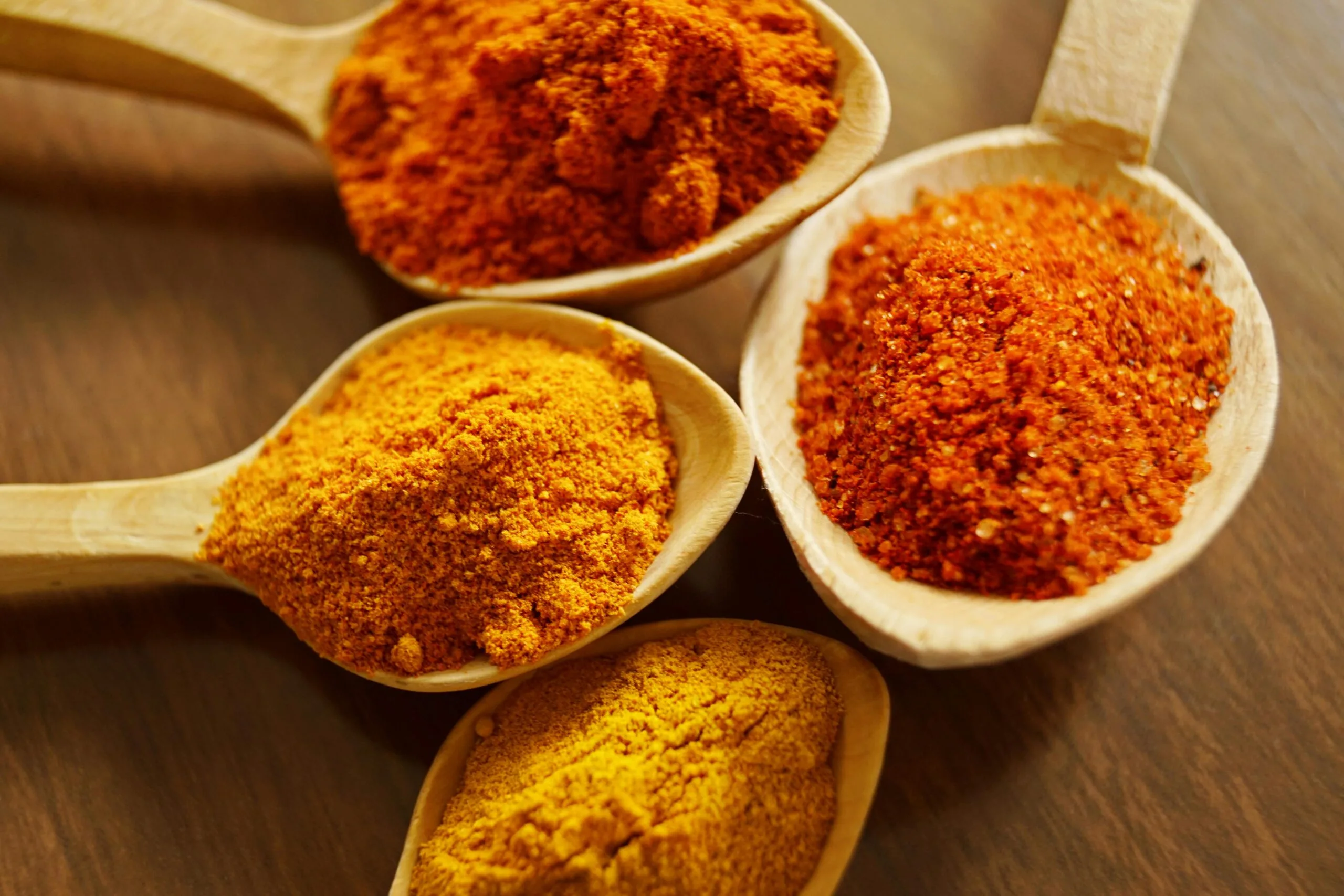If you’ve ever sipped on ginger tea to calm an upset stomach, you’re not alone—and you were actually onto something! Ginger has been used for thousands of years in traditional medicine, and today, modern science is catching up with the wisdom of the past. This little root packs a big punch, especially when it comes to digestive health, bloating, inflammation, and even immune support.
In this article, we’re diving deep into how ginger supports digestion, reduces swelling and bloating, and can help ease IBS symptoms. You’ll also learn why ginger’s effects are especially strong in your stomach and intestines, and how it helps boost immunity naturally.
Let’s get into it!
🌱 What Is Ginger, Really?
Ginger is a flowering plant, but the part we use most often is the root—or more specifically, the rhizome (an underground stem). It’s known for its spicy, warming flavor and is a common ingredient in cooking, teas, and herbal remedies.
But ginger is more than just tasty—it’s packed with powerful natural compounds like gingerol, shogaol, and zingerone, which are responsible for many of its health benefits. And interestingly, many of these compounds work directly in the digestive tract, which is why ginger’s benefits are often felt in the belly first.

🌀 How Ginger Aids Digestion
If you’ve ever felt like food was just “sitting” in your stomach, ginger might be the answer. Ginger helps digestion in a few big ways:
1. Stimulates Saliva and Digestive Juices
Ginger helps “wake up” your digestive system. It stimulates the production of saliva and bile, both of which are essential for breaking down food efficiently.
2. Speeds Up Stomach Emptying
Studies show that ginger can help food move from the stomach to the small intestine faster. This is especially helpful for people who struggle with indigestion or nausea after eating.
3. Reduces Nausea
This is one of ginger’s best-known benefits. Whether it’s motion sickness, morning sickness during pregnancy, or nausea from certain medications, ginger has a natural anti-nausea effect.
👉 Quick Tip: Drinking a warm cup of ginger tea about 20–30 minutes before a meal may help “prep” your digestive system and prevent that heavy, sluggish feeling afterward.
💨 Say Goodbye to Bloating
Bloating can be uncomfortable—and sometimes even painful. The good news? Ginger is a natural bloating remedy.
How It Works:
Relaxes the intestinal muscles to allow gas to pass more easily.
Reduces fermentation in the gut, which can be a source of gas buildup.
Acts as a carminative, which means it helps prevent the formation of gas in the gastrointestinal tract.
If you tend to feel puffy or swollen after meals, especially high-fiber or carb-heavy ones, ginger might help you feel lighter and more comfortable. For us, we definitely notice a more soothing experience after eating something that may trigger gas, especially when we consume cruciferous vegetables like broccoli.

🔥 Ginger and Inflammation: A Natural Soother
Inflammation isn’t always a bad thing—your body uses it to heal. But chronic inflammation can cause or worsen health problems like arthritis, heart disease, or gut disorders.
Ginger contains compounds (especially gingerol) that have anti-inflammatory properties. In fact, some research shows that ginger may be as effective as over-the-counter anti-inflammatory drugs—but without the harsh side effects.
This makes ginger a gentle, natural option for reducing:
Joint pain
Muscle soreness
Swelling in the digestive tract (hello, IBS relief!)
🤍 Ginger for IBS: What You Should Know
Irritable Bowel Syndrome (IBS) is complex and can be tough to manage, especially when certain foods seem to trigger unpredictable symptoms.
While ginger won’t make trigger foods magically digestible, it can help ease the symptoms that follow a flare-up.
Here’s how it may help:
Before a triggering meal: Ginger may help relax the muscles in the gut, reducing cramping or spasms.
After a meal: It can support faster digestion and reduce bloating or gas that often follows.
Many people with IBS find relief from ginger tea, ginger capsules, or fresh ginger slices in warm water taken before and/or after meals. Of course, everyone’s body is different, so it’s worth trying in small doses first. For those who prefer a no-fuss option, ginger capsules like these can be taken before or after meals and may be easier on sensitive stomachs than fresh ginger.
Anecdotal Tip: As someone with IBS (the author), I notice that with certain foods that are only acute triggers, sipping water with ginger powder both before and after allow me to enjoy these foods with a reduction in symptoms!

🛡️ Ginger’s Role in Boosting Immunity
Beyond its digestive benefits, ginger also gives your immune system a natural lift. Thanks to its high levels of antioxidants and anti-inflammatory compounds, ginger helps the body fight off free radicals and reduce oxidative stress, which can weaken your immune defenses over time. It also contains natural antimicrobial properties that may help your body fend off infections like colds or sore throats. Many people reach for ginger tea at the first sign of sniffles—and for good reason! While it’s not a cure, ginger can be a helpful daily ally in keeping your immune system strong and resilient.
🧪 Why Ginger Works Best in the Gut
One of the coolest things about ginger is that many of its active compounds concentrate in the stomach and intestines.
That means its effects are localized to where you need them most—your gut! Whether it’s soothing nausea, easing cramps, or helping with sluggish digestion, ginger’s benefits often start (and stay) in the digestive system. That’s why it’s especially helpful for stomach-related symptoms, rather than being a cure-all for everything.
⚠️ Quick Disclaimer
While ginger has some truly amazing health benefits, it’s important to note:
This article is not meant to replace medical treatment or advice. Ginger is not a substitute for prescription medications or therapies prescribed by your healthcare provider. Always check with your doctor before adding new supplements—especially if you have a health condition, are pregnant, or are on medication.
We’re just here to celebrate what ginger can do—and thankfully, it can do a lot!
🍵 How to Add More Ginger to Your Day

If you’re ready to bring more ginger into your routine, here are a few easy ideas:
Morning Ginger Tea: Slice fresh ginger into hot water and steep for 5–10 minutes. Add lemon or honey if you’d like! If you’re not a fan of peeling and slicing ginger every day, these organic ginger tea bags from Amazon are a convenient way to enjoy all the benefits—just steep in hot water and sip.
Ginger Smoothie Boost: Grate a little fresh ginger into your smoothie for a zesty twist. A simple tool like this ginger grater makes it easier to add fresh ginger into smoothies or recipes without a mess—and it keeps all those juicy nutrients intact.
Cooking with Ginger: Add it to stir-fries, soups, or salad dressings.
Ginger Shots: Found at health food stores or made at home—great for a quick morning kickstart.
Ginger Capsules: If you’re on the go or not a fan of the taste, supplements offer a more convenient option.
💡 Final Thoughts
Ginger is one of nature’s most helpful (and affordable!) remedies—especially when it comes to digestive health, bloating, inflammation, and now, even immune support. While it’s not a cure-all, it’s a great addition to a healthy lifestyle and can bring noticeable relief when used regularly and thoughtfully.
So whether you sip it, cook with it, or take it in capsule form, ginger can help you feel a little lighter, less bloated, and more comfortable in your body—naturally. 🌿
Note: This blog post contains affiliate links, which means we may earn a small commission if you purchase through these links, at no additional cost to you. We review all ratings on these recommendations, and we only recommend products or services we believe can serve a purpose to you. Your support helps keep this blog running, so thank you!
About the Author:
We work in healthcare and know firsthand how tough IBS can be. Ginger has been a lifesaver for helping with those annoying symptoms after eating foods that don’t always agree with us. We like to keep things anonymous but love sharing simple, natural tips that actually help.

